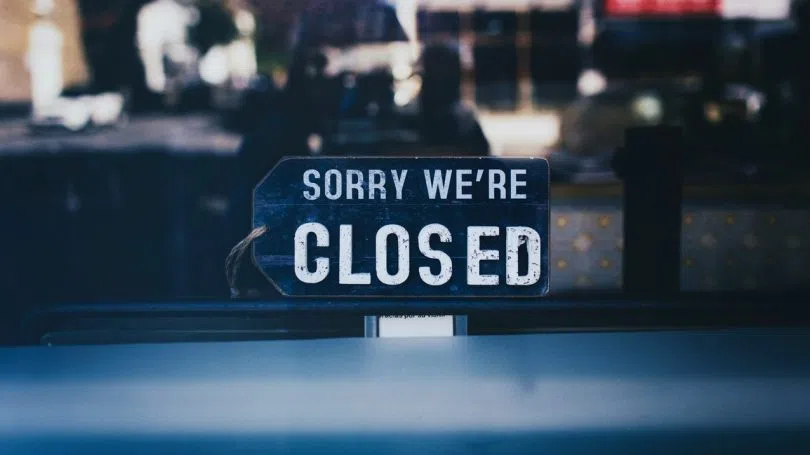Only half of Canada’s small businesses believe they’ll be able to survive if the current conditions to limit the spread of COVID-19 continue to the end of May, according to the latest survey by the Canadian Federation of Independent Business (CFIB) of its members.
“There are a lot of members that won’t make it, and that’s why the urgency is there to support through grants all the fixed costs that small businesses have,” said Louis-Philippe Gauthier, CFIB’s director of provincial affairs for New Brunswick and Prince Edward Island.
The survey also found that 90 percent of small businesses want governments to provide hardship grants to help cover rent and other costs and help them deal with their mounting debts.
“In a lot of instances, the help that’s been provided is in debt form or in deferment form. Generally, a business already has a debt load, so when you look at either adding additional debt then it becomes a high concern,” said Gauthier.
“You’re just adding debt load. That’s primarily why we’re recommending to the federal and provincial governments to move from a deferral and debt structure to grants and specifically, for rents.”
The federal government announced Tuesday that some form of support would be coming from them in the near future. But Gauthier says it’s time for the provincial governments to step up.
CFIB is recommending provinces create provincial hardship grants of up to $5,000 a month for as long as COVID shutdowns last, including the month of April. Two provinces, Saskatchewan and Nova Scotia are already providing one-time grants for small businesses based on 15 percent of a business’s monthly sales revenue, up to a maximum of $5,000.
“We believe that the provincial governments would also have a role in that,” said Gauthier. “If you look at Saskatchewan and Nova Scotia, they’ve already put what loosely could be described as ‘hardship grants’ where they’re providing cash support to businesses so they can cover fixed costs, which includes rent.”
In some provinces, like New Brunswick, there’s currently a clause that prevents commercial tenants to be evicted. But that doesn’t mean businesses aren’t expected to eventually pay up. With the economy expected to start up again in phases, Gauthier says that could cause small businesses even more trouble down the road.
“That money is still going to be there for the business owner to pay back when we wake up from COVID-19. You’re essentially shoveling the snow constantly in front of you, and it’s going to create a huge speedbump for a lot of businesses at a time when a lot of governments are starting to consider relaxing some of the restrictions,” he said.
“You really have to add additional support in the form of cash so when pieces of the economy get restarted, certain types of businesses can restart, so they don’t have a pile of bills at their front door.”
A version of this story was published in Huddle, an Acadia Broadcasting content partner.




